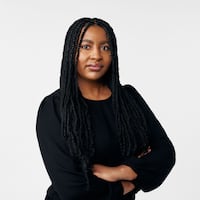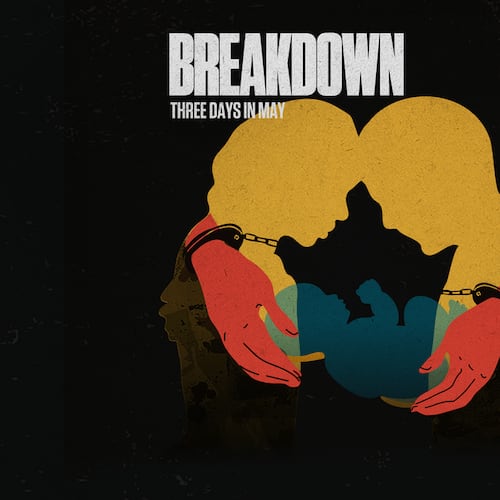Secoriea Turner’s parents still carry the pain of losing a child in their expressions. Their voices were laced with exhaustion Monday as they lamented that their 8-year-old – who was shot to death near an Atlanta Wendy’s last summer – should still be in their arms.
“We are forced to live through this day by day,” her mother, Charmaine Turner, said. “We deserve justice. Someone needs to be held accountable.”
It’s that thirst for accountability that has driven them to file a lawsuit against the city of Atlanta, its mayor and other leaders they allege failed to protect their child’s life, according to their attorneys.
The family filed a complaint in Fulton County State Court alleging numerous failings by city leaders, “including that they were negligent in their duties by failing to remove armed vigilantes who had gathered alongside peaceful protesters at the Wendy’s where Rayshard Brooks was shot and killed,” according to attorneys with The Cochran Firm, which is part of the family’s legal team.
The complaint, which was announced Monday morning during a news conference, names the city and Mayor Keisha Lance Bottoms, Atlanta police Chief Rodney Bryant, City Councilwoman Joyce Sheperd and Wendy’s International.
“There is no dispute that this little girl was innocent — that this family was innocent,” attorney Shean D. Williams of The Cochran Firm said during the news conference. “Did nothing wrong. On their way home, and they lost their little one.”
Secoriea was shot while riding in a car with her mother July 4 of last year. The child, who was a rising third-grader at Kipp Ways Academy, was in the back seat when they encountered a group of armed people blocking a street near the burned-out Wendy’s where Brooks was killed by police.
Protesters upset by his death had been camped out at the restaurant for weeks. Police said a group manning a makeshift barricade opened fire on the SUV after it tried to drive around the boundary.
The child was struck in the back when eight bullets flew into the car.
“Charmaine Turner and a friend were literally on their way home, and as they were attempting to get home they were faced with a barricade in a City of Atlanta street,” attorney Mawuli Davis of the Davis Bozeman Law Firm said. “They were not able to get home that night safely.”
The fatal shooting happened during the deadliest year the city of Atlanta had seen in two decades — and during an uptick in violent crime that has continued into this year. In 2020, Atlanta police investigated 157 homicides. This year, the police department has opened 62 homicide investigations so far, officials said.
The surge in crime has led to an outcry from rattled residents and business owners, and pressure is building on public officials to put the epidemic of violence at the forefront of their efforts.
In early May, Bottoms created a working group to provide recommendations for reducing crime. During a city council meeting Monday, Bryant announced he is restructuring the police department in order to create a domestic violence unit and expand its gun assault unit.
“We believe this reorganization of this unit will give us the ability to work more aggravated assault cases more thoroughly, more efficiently and take individuals off the streets more rapidly,” he said.
Police have said as many as four people fired in the shooting that killed Secoriea, but they have made only one arrest. Julian Conley, 19, who was charged with aggravated assault and felony murder, has said he witnessed the shooting but didn’t pull the trigger.
The burned-out shell of the Wendy’s was demolished by a wrecking crew July 14. During a meeting with The Atlanta Journal-Constitution’s editorial board in the days that followed, Bottoms said she planned to shut down the site weeks before the fatal shooting.
At that time, the mayor said she was allowing Sheperd more time to negotiate with demonstrators at the site.
The complaint alleges that in allowing that action, Bottoms, Sheperd and the police chief failed to protect Atlanta’s residents and “directly and proximately led to Secoriea’s death, which was foreseeable and avoidable.”
“By agreeing to allow Councilmember Sheperd more time to negotiate with armed civilians who had commandeered the area surrounding 125 University Avenue SW, and by ordering APD officers to stand down and refrain from proactive policing and by standing by and letting vigilantism disrupt the streets, Mayor Bottoms and Interim Chief Bryant failed to carry out their duties in protecting the health and safety of the affected community,” the complaint said.
Sheperd declined to comment on the lawsuit, but in a statement said the pain of Secoriea’s death “still resonates with me, within the community and city at large.”
“My heart is with the family and those who have been impacted by this loss. In the wake of the tragedy, I am aware of the lawsuit that has been filed on behalf of the family. I have been in contact with our law department and will not be making any official statements related to the lawsuit.”
Sam Starks, who is part of the Turner family’s legal team, said the lawsuit is based on a “failure of city government in the highest levels.”
“The problem is that they failed to take any action to address the reports of crime, the reports of violence and the reports of danger within that area until it was too late,” he said.
The announcement comes eight months after Davis put the city on notice that they were considering a lawsuit. In mid-October, he gave the city 30 days to engage in settlement negotiations or face a $16 million lawsuit.
“They knew that at least on two other occasions people had been shot,” Davis said at the time. “They knew there were armed vigilantes blockading a public street, and they took no action.”
Davis told the AJC that all of their attempts to reach the city on the matter went without a response.
“We’ve received no official correspondence from the city,” he said. “They had 30 days to engage in negotiations and it has been much more than 30 days.”
The complaint asks a court to grant the family financial compensation “in an amount to be determined” and a jury trial “on all claims so triable.”
Williams said the request stems from legal oversight that doesn’t make room for any form of compensation other than financial.
“The legal system set up before me and Mr. Davis ever finished law school said that the only remedy for us is monetary,” he said, addressing questions from reporters following the news conference. “I promise you — hear me clearly — I don’t want to be standing here. I don’t need to be standing here. I want this little girl back for this family. If you — or anybody in the media, or anybody in the city — can bring this little girl back, I’ll step back. But the only legal remedy that exists is compensation for them.”
Secoriea’s parents said that although nothing can bring back their daughter, they are hoping that the parties involved will be held accountable for their part in her death.
“We are here for accountability,” Secoriea’s father, Secoriey Williamson, said, “for everyone that caused this to happen.”
According to Davis, that would require “the city to acknowledge that they have leaders that have failed in some way.”
“Part of that includes that we want changes in the philosophy in how they do policing,” Davis told the AJC. “We want her life and her name to matter as much as other lives out there.”
The AJC reached out to Atlanta police for comment but did not receive a response. The mayor’s office declined to comment about the lawsuit.
“The murder of Secoriea Turner, as a result of senseless gun violence, is a tragedy that no family should have to endure,” a spokesperson for the mayor’s office said. “Due to the anticipated litigation, the City will offer no further comment at this time.”
About the Author
Keep Reading
The Latest
Featured



